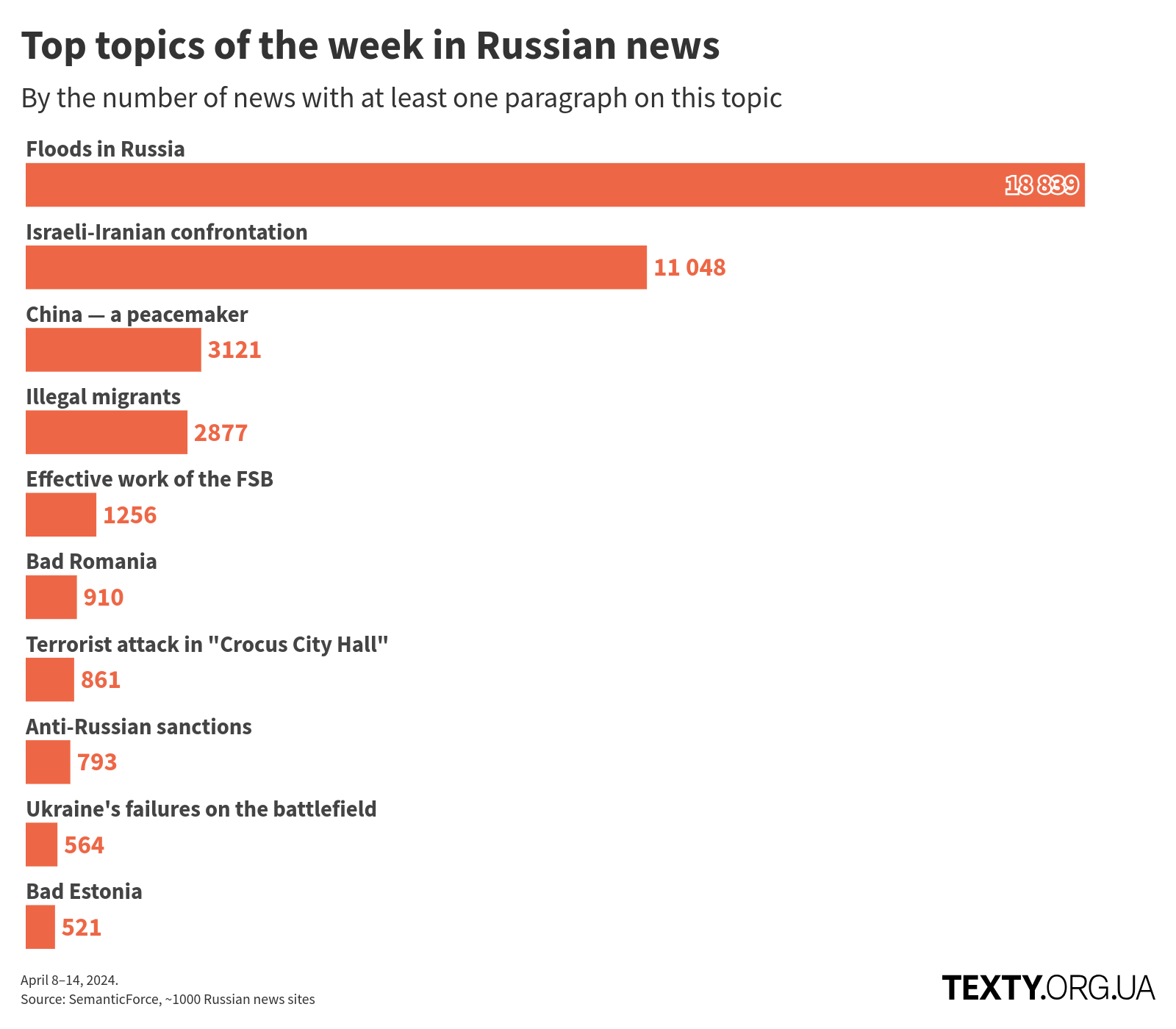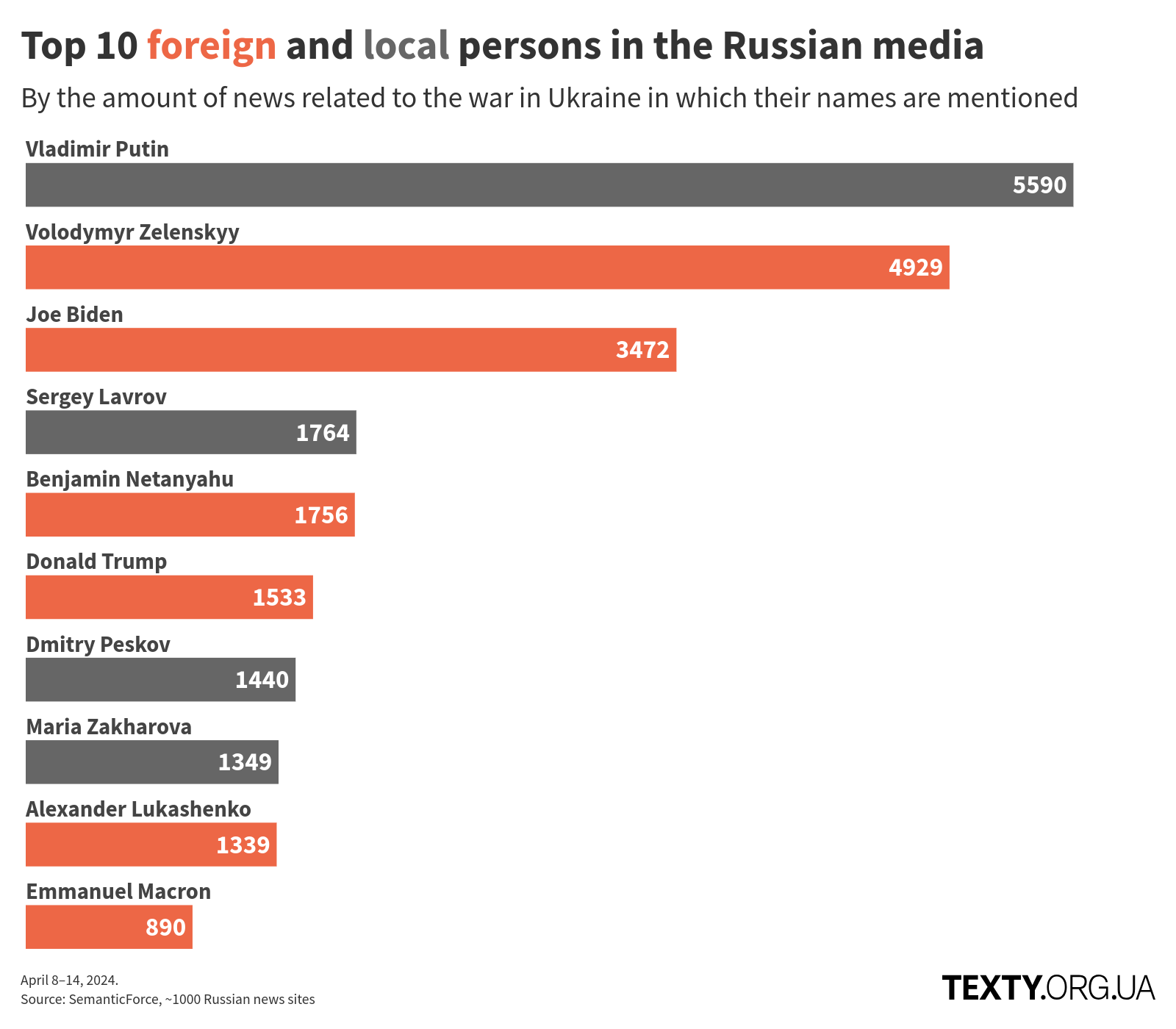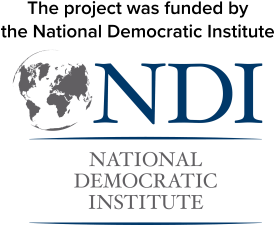Ukrainian Burisma finances terrorists. Russian Media Monitoring Report, April 8-14, 2024
Last week, the Russian media was concerned about the flooding in Russia. This is the leading news, so attention was focused on praising the work of government agencies in rescuing people from this disaster. Propaganda also whitewashed the reputation of the Federal Security Service of Russia (FSB). The fact that the Americans knew about the attack and even informed them about it significantly damaged the prestige of the FSB. That's why disinformers wrote a lot about its work. They report on the detention of terrorists and spies in packs. In reality, it often involves the detention and imprisonment of Russians who carelessly write something on social media. The Russian media also wrote about an ally in the Middle East, Iran, which righteously responds to Israel for insults but, in fact, acts as a peacemaker because it could have caused irreparable harm to Jews but does not want to do so in good faith.
Read about this and more in the new issue of our monitoring of Russian state media and manipulative websites that target Russian disinformation.

The FSB is working
Almost a month has passed since the terrorist attack in Crocus City Hall, and we realize that the Russian leadership is either unable or unwilling to identify and punish the real perpetrators of the crime. The myth has already been created: Ukraine and the West are to blame for everything. The Investigative Committee of the Russian Federation opens cases against the United States and NATO countries that directly committed the terrorist attack: "The Investigative Committee has opened a case on terrorist financing by officials of the United States and NATO countries. This decision was made following an inspection after the terrorist attack in Crocus City."
The propaganda does not hesitate to sew the case with white threads, claiming without a shadow of hesitation that the money was transferred through the Ukrainian company Burisma: "According to the investigation, the criminals received funds through the oil and gas company Burisma Holdings in Ukraine, where the son of the current US President Hunter Biden was a member of the board of directors for several years."
The topic of Biden and Burisma was actively used in the last US presidential election. With its help, Trump tried to accuse the Biden family of corruption.
At the same time, Russia's intelligence agencies and the structures responsible for Russia's national security system launched a campaign to whitewash the FSB's reputation.
Last week, the Russian media published a lot of news about the work of the FSB, which detained alleged terrorists, suspects, and spies throughout Russia and especially in the occupied territories: "In Zaporizhzhya region, special services detained an SBU agent preparing a terrorist attack", "FSB detained a resident of Orel region for passing data to the Armed Forces of Ukraine", "Federal Security Service thwarted an attempted terrorist attack in a cult Jewish institution in the capital", "FSB prevented a terrorist attack at a military facility in Donetsk".
There are also stories that the FSB prevented the murders of Crimean collaborators: "The FSB announced the detention of agents of the Main Intelligence Directorate of the Ministry of Defense of Ukraine who were preparing attempts on the leaders of Crimea. The targets of the attacks were the head of the republic, Sergey Aksenov, the chairman of the parliament, Vladimir Konstantinov, and the mayor of Yalta, Yanina Pavlenko."
And the stories that the FSB detains organizations that extort money from Russians to finance the Armed Forces of Ukraine: "The Federal Security Service of Russia detained fraudsters involved in extorting money from Russians to help the Ukrainian army. The criminals stole seven billion rubles in this way", "We feel sorry for the citizens of our country who reluctantly transferred money to criminals to be used for the needs of the Ukrainian army".
A fake strike
On the night of April 14, Iran attacked Israel with about three hundred drones and missiles. Some of the launches, according to the Israelis, were from Iraq and Yemen.
Russian propaganda began to speculate whether there would be a major war between these countries and what dividends the conflict would bring to Russia.
Among Moscow's positive aspects, the so-called experts singled out the significant increase in energy prices.
As for whether the confrontation will escalate into a classic war, opinions differ: some say the world will explode, while others say it is just an exchange of threats.
Disinformers justify the attack: "Iran retaliated for Israel's strike on the Iranian consulate when Israel killed several Iranian generals. Iran demanded that Western countries and the UN condemn this Israeli attack, but they refused." And they say that Iran deliberately launched a weak strike because it does not want a big war: "Analysts argue over the extent to which Iran's attack was calculated to cause real destruction in Israel or to save face at home after vowing revenge while avoiding a major new war," "Iran has satisfied its duty to retaliate, but Israel was not harmed, so Israel will not respond with a strong strike."
They justify the creation of fake news by Iran. For example, Iranian television presented fires in other countries as the result of their attack on Israel. The Russians called it "ingenuity": "Iran wants to show its population that the missile attack on Israel was successful. And sometimes, you have to be creative to prove it. Iranian TV showed this footage as the result of an Iranian missile strike on Israel. But in reality, it is a fire in Chile."
In this confrontation, propaganda tends to favor Tehran's moral support. Jews are accused of escalating the conflict and racism: "Musk praised a post that said Jews "put forward exactly the kind of dialectical hatred of whites that they claim they want people to stop using against them".
They assure that sooner or later, Israel will lose because the Americans will "abandon" them.

China
Russian propaganda loved the statement by Chinese diplomats about the friendly relations between China and Russia, and there was a mention of Putin: "We will support the revival and stable development of Russia under Putin's leadership, increase multilateral cooperation, and provide each other with strong support."
The propagandists argue that China and Russia are building a new world order in which the United States will lose its status and role as a world leader: "Russia and China have agreed to start a dialogue on Eurasian security involving like-minded states and to establish a "double counteraction" in response to the West's "double deterrence."
And even now, according to propaganda, China is already scaring the United States: "The United States is in no hurry to set 'red lines' with China, as it fears that this could provoke a negative reaction from Beijing."
China has also become an advocate for Moscow, defending its interests in a world full of Russophobes: "China supports the convening of a peace conference on Ukraine with equal participation of all parties and with discussion of all peace plans."
Russia is convinced that China is the West's enemy, that the Russian-Chinese alliance is a guarantee of global stability and the protection of traditional values, and that Washington has always tried to do everything to devalue the friendship between Beijing and Moscow: "We have long chosen China as our ally, twenty years ago. Our interests coincided in some ways. However, the United States has always had the opportunity to quarrel with us. They know how to do that." "Vladimir Putin and Xi Jinping very competently, at the political level, calculated the consequences of the new Western policy after the collapse of the Soviet Union and actually became allies against the West. But in the United States, the main bulwark of the West, they made a mistake with allies and chose insignificant political dwarfs like Estonia, Latvia, and Lithuania."
The Methodology
To monitor the information published on disinformation websites, we analyzed approximately 500,000 news reports collected from ~ 1,000 Russian websites. The data for the analysis was collected and provided by SemanticForce.
Each paragraph was processed using an algorithm which defines its topic automatically. The resulting topics (i.e. groups with similar content) were short-listed by the topics relating to the war or its consequences for Russia. The number of mentions of a certain topic was then counted for each publication. Our conclusions are based on the respective findings and the quotes from paragraphs referring to each topic.

This article was originally written in Ukrainian. It has been translated into English using AI tools such as DeepL, ChatGPT, and Grammarly. If you encounter an error that requires immediate attention, please inform us via Facebook, Twitter, or Instagram. Your understanding and support are appreciated.





